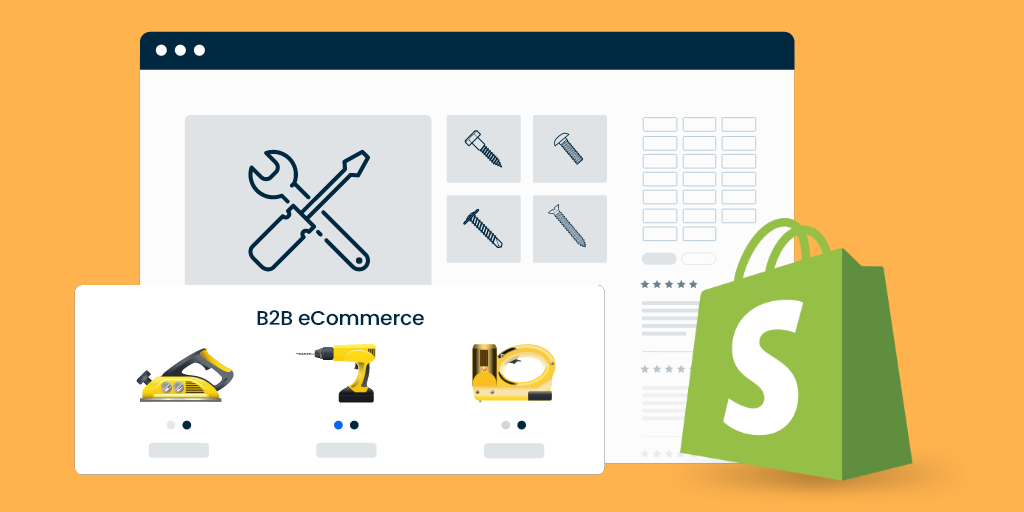Expanding Your eCommerce Internationally & Navigating the Unknown

The concept of the ‘global village’ will truly come to fruition when the exchange of goods across borders mirrors the fluidity and ease of sending an email or placing a phone call. Just as our thoughts and voices effortlessly transcend boundaries, so too should commercial transactions, symbolizing the full embodiment of our interconnected world.
Listen to the full podcast:
In the fifth episode of Shift-Click, we had the opportunity to have a great and deep conversation with Sheila Donovan, CEO at Worldwise Ads, and Marc Zazeela, an expert in international logistics. Sheila and Marc shared their experiences and valuable insights about expanding retail operations globally by employing the right strategies for international eCommerce.
So, if you are looking forward to setting your foot in a new market and expanding your eCommerce business, here is a guide that can help you do it right.

Summary: Advice for Businesses Considering Going Global with eCommerce
- Pick Partners Wisely: When expanding internationally, choose partners, including shipping and logistics providers, to ensure smooth operations and customer satisfaction.
- Consider Total Cost of Business: Look beyond just shipping costs and consider the total cost of doing business in international markets to avoid unforeseen expenses and inefficiencies.
- Invest in Robust Customer Service: Prioritize customer service to interact with customers throughout their buying journey, addressing inquiries and concerns promptly.
- Set Realistic Expectations: Be transparent with customers about product details, shipping costs, taxes, and delivery times to manage their expectations effectively.
- Conduct Thorough Research: Utilize free resources, social media, and market analysis tools to understand target markets and identify potential growth opportunities.
- Offer a Good Customer Experience: Focus on providing a positive overall customer experience, from website usability to timely delivery, to foster loyalty and success in global e-commerce
Key Considerations for International eCommerce
“Pay attention, investigate the market, and understand consumer preferences to find success in the international market.” Sheila Donovan
A staggering 95% of the world’s consumers reside outside of the United States. To tap into this vast global market, entrepreneurs and business owners must embrace a proactive approach and pay unwavering attention to the crucial factors that can make or break international ventures.
Evaluating Product Demand in a Market
Product Demand describes how much customers desire a company’s product over time. There are various ways to measure and forecast product demand. Here are six factors a business owner must remember.
Total Addressable Market (TAM) and Total Service Addressable Market (SAM):
TAM refers to the total market for your service and SAM refers to your target audience in the total addressable market. Sheila emphasizes the importance of understanding the total potential market size and the segment that can be served by the product or service in various countries as it can help in crafting a robust marketing and sales strategy.
Infrastructure:
Consider the logistics and distribution systems in each country. Developing nations may have evolving logistics systems, and understanding this is crucial for successful market penetration.
Cultural Nuances:
While there might be similarities in consumer needs globally, it is important to understand cultural differences and how they can influence product demand.
It’s easier to first think about expansion in countries that have cultural and language similarities. For example, an American manufacturer in the US may consider expanding to Canada, UK, and Australia. Likewise, a Spanish country can consider expanding into Mexico or Peru.
“Simply doing something like subscribing to the right eCommerce newsletters, reading the news, and just paying attention is a great way to start.” Sheila Donovan
Average Income:
The average income of a customer living in a particular region in a country impacts the affordability and purchasing power of consumers, which must be taken into account while evaluating product demand.
“You also have to understand things like what is facts about the population, what’s the average income. Maybe you can sell a shirt for 100 bucks in the United States but that’s not likely to happen in the developing nation, where average incomes on a yearly basis are much lower.” Sheila Donovan
Product Availability:
The availability of certain products can be limited in some countries. This creates opportunities to tap into new markets by offering products that are not readily accessible locally.
“China is a huge growing market for eCommerce, even though most of the products that American merchants sell to people in China are made in China because they manufacture them for export and they’re not available locally” Marc Zazeela, eCommerce Growth Expert
Testing Markets:
It is an invaluable step in validating your product or services when tapping into a new market. Contrary to popular belief, market testing doesn’t have to be expensive. With a budget as low as $25-$100, you can conduct a small-scale test to gauge demands and gather relevant feedback. Track key metrics such as click-through rates, conversion rates, and customer feedback during the testing phase. This data will provide insights into customer acceptance and allow you to fine-tune your offering before fully entering the market.
“We have customers that just open up their web stores to the whole world without thinking about where’s it going to sell and where it’s not going to sell. And that’s certainly not a very scientific approach.” Sheila Donovan

Consider Cost for Expanding Business
Getting an understanding of your expenses is an absolute necessity as it helps in getting an understanding of the health and runway of your business. This is especially important when expanding into new markets on a global level.
New countries have vastly different operating legislations, ones that can harbor hidden costs that put a stop to business growth. And without proper preparation, you may find yourself sinking in quicksand on the pathway to your business’ success. Here’s what you need to consider when expanding into new markets.
Tax and Compliance:
The barrier of unfamiliar legal policies affects how you manage your data, labor, marketing, labeling, and tax, as well as a host of other key functionalities. Before stepping into the new market, it is worth carrying out an extensive cost-benefit analysis to be certain of the business-specific legal obligations.
Expatriation Costs:
There are two common routes that can be taken when expanding into a new market; hiring local talent or deploying global expatriates. The latter is preferred when the local talent is limited, but it also comes with a myriad of problems and expenses including language training, relocation, housing benefits, transport, cultural training, and more.
Cultural Changes:
Keeping up to date with the cultural legislative narrative imposed by another national body around the world, is a significant expense. Both money and time are required for the research project for an accurate global expansion.
Premises and Rent:
Real estate, rent, and bills associated with running an office — all are expenses that can be costly.
Also, checkout our article on 6 Practical Tips to Cut Costs for Your Ecommerce Store
Finding the Right Partners
“One thing that puts together the whole ecommerce equation is picking your partners carefully,” — Sheila Donovan
When it comes to overcoming regulatory hurdles, understanding cultural nuances, or streamlining logistics, a well-chosen partner can provide invaluable support and open doors to untapped opportunities. According to Sheila and Marc, here is how finding the right partners can help in expanding internationally.
Navigating Local Regulations and HS Codes:
International markets come with a myriad of regulations, customs requirements, and HS codes, which can be daunting for businesses to navigate on their own. However, finding the right partner who is well-versed in these intricacies can streamline business processes while ensuring compliance with local laws.
Cultural and Linguistic Understanding:
When it comes to expanding in the foreign market, cultural nuances and language barriers can significantly impact the success of a business. Having a local partner who has been a part of that culture and understands consumer behavior can ensure effective communication and help tailor marketing strategies and product offerings that resonate with the target audience.
Market Insights and Research:
Understanding the unique demands and preferences of consumers in different markets is essential for tailoring products and marketing approaches. A local partner can provide valuable market insights and research, allowing businesses to make informed decisions when expanding internationally.
Establishing Trust and Credibility:
In foreign markets, building trust and credibility can be a challenging task for businesses operating from a distance. Teaming up with a reputable local partner can lend legitimacy to the brand and assure customers that their needs will be met reliably, thereby fostering trust and loyalty.
Fulfillment and Logistics Support:
Efficient and timely order fulfillment is crucial for customer satisfaction. Local partners with established fulfillment networks can help businesses ensure prompt delivery and customer support, reducing shipping times and costs, ultimately resulting in satisfied customers.
Overcoming Language Barriers:
Customer support is an integral part of the e-commerce experience. Having a partner who can provide multilingual customer service can bridge language gaps and ensure seamless communication with customers in their native languages.
Leveraging Established Networks and Distribution Channels:
Finding the right partners means gaining access to established distribution channels and networks. This can significantly expand a business’s market reach and increase the likelihood of product visibility and sales.
Mitigating Risks and Costs:
Entering a new market without proper knowledge and support can lead to increased risks and costs. A reliable local partner can help businesses navigate potential pitfalls and minimize risks, leading to a cost-effective and efficient market entry.
Choosing the Right Payment Methods
The ability to offer convenient and secure payment options is a critical factor that can make or break a business’s success in the international market. A business needs multiple global payment methods because international vendors typically expect a flexible payment experience to best suit their needs. Here are some reasons why choosing the right payment methods is absolutely necessary for the success of your eCommerce business.
Customer Trust and Comfort:
A customer must feel comfortable and should be able to trust the payment options offered by e-commerce businesses. If customers are not confident in the security and reliability of the payment process, they are unlikely to complete their purchases, leading to lost sales opportunities.
Fraud Prevention:
Global e-commerce operations are susceptible to fraud, making it essential to choose payment partners that offer robust fraud prevention measures. Implementing secure payment and locally trusted payment options helps against fraudulent transactions ultimately protecting both businesses and customers from hackers, fostering trust and credibility.
Seamless Integration:
Seamless integration between payment processors and shopping carts ensures a smooth and hassle-free checkout experience for customers, reducing cart abandonment rates and improving overall customer satisfaction.
Currency Conversion and Customs Fees:
Selling internationally often involves dealing with multiple currencies and customs fees. The right payment methods and processors are capable of handling currency conversions and accurately calculating customs fees, simplifying the buying process for customers.
Language Localization:
A crucial aspect of offering the right payment methods is providing checkout experiences in local languages. Language localization demonstrates a commitment to understanding and meeting the needs of customers in different regions, ultimately enhancing the overall shopping experience.
Staying Well-informed of the Local Payment Preferences:
Each market may have unique payment preferences. Staying informed about local payment processors and being adaptable to meet these preferences boosts customer satisfaction and increases the chances of successful sales.
The Importance of Customer Services
“A happy customer tells their friend and an unhappy customer tells the world.”
— Sheila Donovan
Customer service emerges as a cornerstone of success in the realm of global e-commerce. As e-commerce continues to evolve, businesses that prioritize exceptional customer service will undoubtedly stand out in the competitive international marketplace. Here is why it is important!
Enhancing Customer Experience:
The entire customer journey, from pre-purchase interactions to post-purchase support, contributes to the overall customer experience. Offering prompt and helpful customer service ensures that customers feel valued, leading to higher levels of satisfaction and increased chances of repeat purchases.
Handling Mistakes and Resolving Issues:
Mistakes and unexpected issues may arise during the e-commerce process, and how they are handled can significantly impact customer perceptions. Effective customer service involves acknowledging and addressing any problems and turning negative experiences into positive interactions that leave a lasting impression.
Positive Impact on Customer Retention:
Exceptional customer service can increase customer retention rates. Satisfied customers are more likely to remain loyal to a brand and recommend it to others, generating positive word-of-mouth referrals that contribute to business growth.
Impact on Brand Reputation:
Social media’s prominence amplifies the importance of customer service in global e-commerce. Positive customer experiences are shared and celebrated and can enhance a brand’s reputation. Conversely, negative experiences can spread rapidly, underscoring the need for proactive and responsive customer support.

Hire ecommerce development experts at Codup.
The Verdict
Quality and uniqueness are the two factors that any customer will willingly pay a premium for. However, it’s crucial for business owners to understand the intricacies of the markets they are entering. By navigating the complexities of regulations and compliance, testing the market, finding the right partners for collaboration, and providing exceptional customer services, they can establish a strong international presence and drive growth in the ever-expanding world of eCommerce.
For more in-depth discussions and expert insights, tune into Shift Click Podcast.



